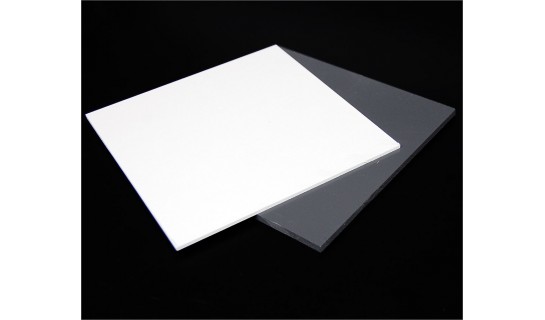Polyvinyl chloride pvc is one of the most commonly used thermoplastic polymers in the world next to only a few more widely used plastics like petand pp.
Polyvinyl sheet plastic properties.
The vinyl chloride monomer exists in concentrations less than 8 5 ppm.
It is a naturally white and very brittle prior to the additions of plasticizers plastic.
Unplasticized or rigid pvc density.
This solid form can then be modified with the addition of fillers and plasticisers depending on the task at hand.
The material is also dimensionally stable due in part to its low moisture absorption.
Pvc has high hardness mechanical properties tensile strength and the continuous operating temperature is from 15 c to 60 c.
Type 1 polyvinyl chloride pvc is a versatile thermoplastic that is utilized for its chemical resistance excellent strength to weight ratio flame resistance and cost effectiveness.
Pvc comes in two basic forms.
Pvc is a white brittle solid available in powder form or granules formed through an addition polymerisation reaction between vinyl chloride monomers figure 1.
The mechanical properties enhance with the molecular weight increasing but decrease with the temperature increasing.
In polyvinyl chloride bis 2 ethylhexyl phathalate exist in concentrations less than 1.
It is not vulcanized but has some of the properties of a rubber or of plasticized polyvinyl chloride particularly at the higher end of the range.
Rigid sometimes abbreviated as rpvc and flexible.
Both filled and unfilled eva materials have good low temperature properties and are tough.
Clear pvc is excellent when used for corrosion resistant tanks ducts fume hoods and pipe.
It is a stiff and cost effective plastic with high resistance to impact water weather chemicals and corrosive environments.
It is prepared by chlorination of pvc resin.
Pvc polyvinyl chloride also known as vinyl is a durable plastic that provides an excellent balance of strength and weight and is typically resistant to acids alkalis and most other inorganic chemicals.
Chlorinated polyvinyl chloride or perchlorovinyl.
Polyvinyl chloride pvc sheet or rod properties.
Pvc is the world s third most widely produced synthetic plastic polymer after polyethylene and polypropylene about 40 million tons of pvc are produced each year.
The materials with approximately 11 va are used as hot melt adhesives.










